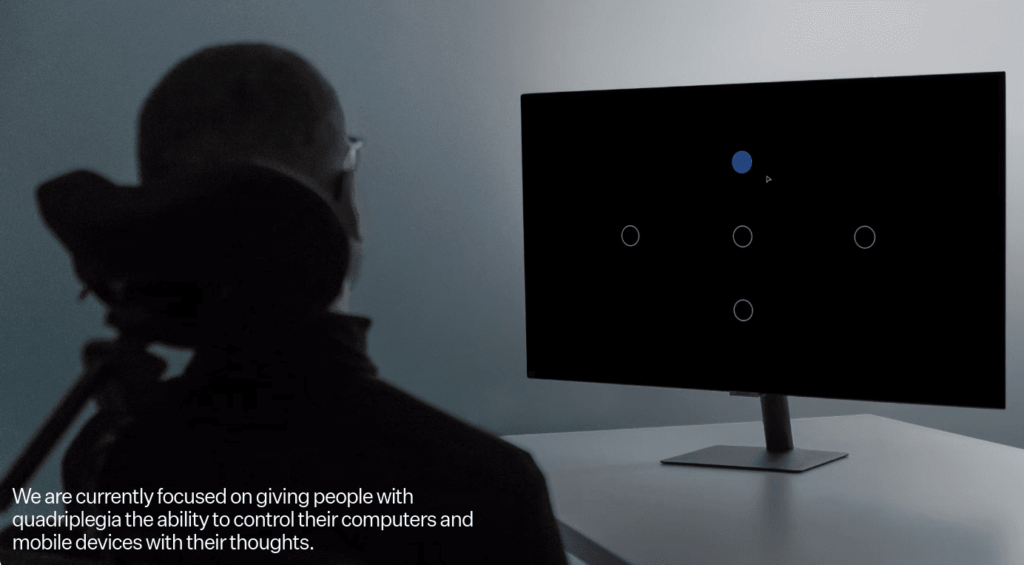Tag: Neuralink, First-in-Human Clinical Trial, Approval, How to apply, R1 robot, N1 implant
They are pleased to announce that they have received approval from the reviewing independent institutional review board and the first hospital site to commence recruitment for their first-in-human clinical trial. The PRIME Study (short for Precise Robotically Implanted Brain-Computer Interface) – a groundbreaking investigational medical device trial for their fully-implantable, wireless brain-computer interface (BCI) – aims to evaluate the safety of their implant (N1) and surgical robot (R1) and assess the initial functionality of their BCI for enabling individuals with paralysis to control external devices with their thoughts.

During the study, the R1 Robot will be utilized to surgically place the N1 Implant’s ultra-fine and flexible threads in a region of the brain responsible for controlling movement intention. Once in position, the N1 Implant is not visible and is designed to record and transmit brain signals wirelessly to an app that interprets movement intention. The initial objective of their BCI is to provide individuals with the ability to control a computer cursor or keyboard solely with their thoughts.
The PRIME Study is being conducted under the investigational device exemption (IDE) granted by the FDA in May 2023 and signifies a significant step in their mission to create a generalized brain interface to restore autonomy to individuals with unmet medical needs.
Individuals with quadriplegia resulting from cervical spinal cord injury or amyotrophic lateral sclerosis (ALS) may meet the eligibility criteria.
If anyone is interested in determining whether they qualify for current and future Neuralink clinical trials, they should consider joining the Patient Registry.
To learn more: download the study brochure here